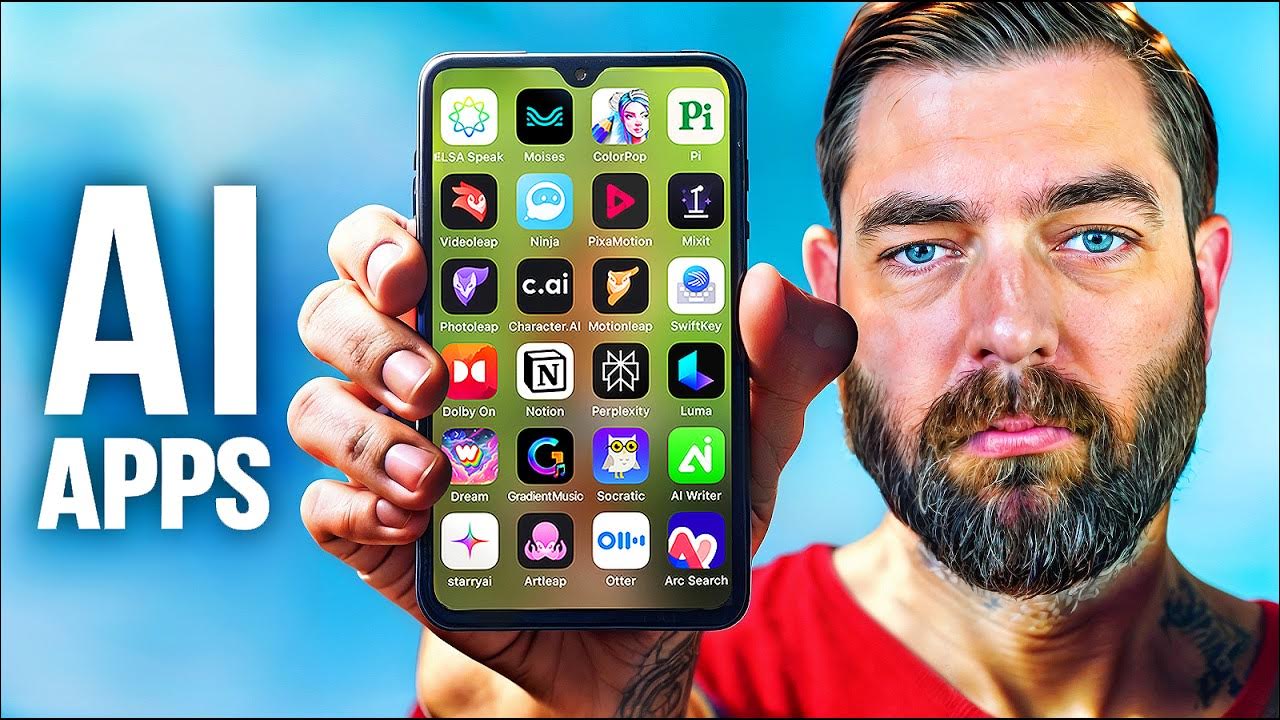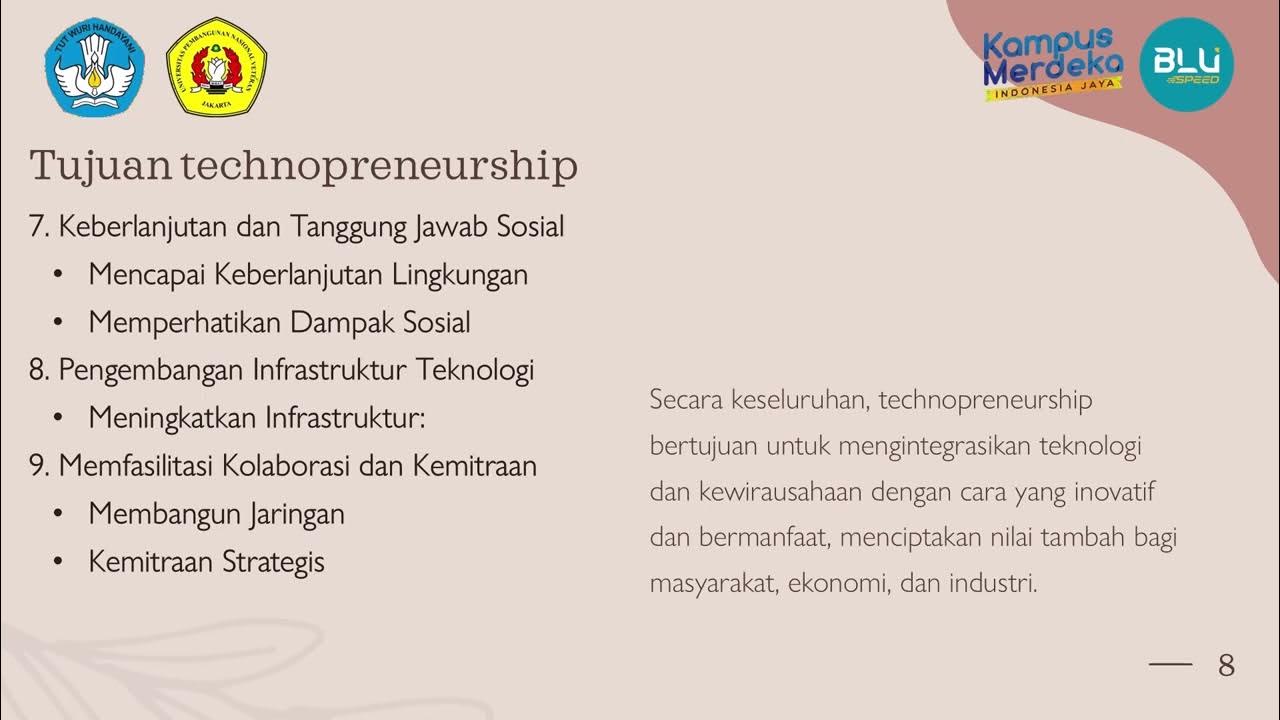AT&T Presents - Winning in a GenAI Disruptive World
Summary
TLDRThe speaker reflects on previous technology disruptions like the internet and mobile apps to provide context on the disruption caused by AI models like ChatGPT. He explains how ChatGPT is being rapidly adopted across industries and shares examples of how his company AT&T is using it to boost productivity. He advises graduates to learn these new skills to stay competitive in the workplace or consider entrepreneurial opportunities building on top of language models, emphasizing key principles like iterating quickly, enabling broad use cases, and automating actions.
Takeaways
- 😲Generative AI like GPT is massively disruptive, touching many industries and being adopted very quickly
- 👩💻As a new grad, get hands on with generative AI fast to stand out and be productive
- 🤝Enable yourself broadly with generative AI - automate workflows, analyze data, write content etc.
- 💡Build on top of large language models for the most value - the models themselves may commoditize
- 🔀Iterate applications of generative AI - it won't be perfect at first, incorporate human feedback
- 🚀For entrepreneurs, now may be the best time ever - huge opportunities in this disruption
- 💰Get to generative AI applications fast for outsized gains - it's poised to be a 'winner takes most' market
- 🤖Go beyond information to recommended actions and automation for the highest value from generative AI
- 📈Legacy workers may struggle - as a young grad you likely have big advantages
- 😎Don't be narrow in your thinking - small generative AI teams will build huge businesses
Q & A
What are the three major technology disruptions the speaker has witnessed in his career?
-The three major technology disruptions the speaker referenced are: 1) The rise of the internet, the World Wide Web, search engines, and email in the 1990s; 2) The emergence of companies like Amazon and the shift to online retail around 2002; and 3) The launch of the iPhone in 2007 which dramatically increased mobile data usage and access.
How does the speaker explain the wide-ranging impact of generative AI models like ChatGPT?
-The speaker shows data indicating generative AI has potential impact across many sectors - finance, customer service, education, healthcare, etc. He says it 'almost affects everything' and seems more disruptive than previous innovations because of its broad applicability.
What does the speaker mean when he advises people to 'get there fast' regarding generative AI?
-He means that early adopters of new technologies like generative AI often gain a dominant market position, using the examples of companies like Google, Amazon, and Apple. His advice is to start implementing and leveraging generative AI as soon as possible before competitors do.
What does the speaker mean by 'enable yourself broadly' in terms of preparing for disruption from generative AI?
-He advises developing skills across multiple roles rather than specializing, because generative AI may allow automation of certain specialized roles. His example is a developer possibly taking on other responsibilities thanks to productivity gains from generative AI.
Where does the speaker suggest focusing for the most value on top of generative AI models?
-He suggests building capabilities on top of the core language models, rather than trying to differentiate solely with better language models. Examples could include domain-specific implementations or going beyond information retrieval to take automated actions.
What unique advantages does the speaker highlight for students preparing to enter the workforce?
-He notes that as digital natives, students are adaptable to new technologies like generative AI. They can take advantage of more experienced coworkers who may struggle adapting to innovations like chatbots and AI assistants.
When does the speaker suggest entrepreneurial opportunities may be greatest with regard to generative AI?
-He proposes that the current period, with rapid advances in generative AI across industries, represents an unprecedented opportunity for enterprising startups to harness these tools to disrupt established players.
What AT&T-specific uses does the speaker describe for generative AI models?
-AT&T is using generative AI for internal Q&A, documentation, accelerating workflows, generating code, classifying/translating documents, creating marketing content, etc. The speaker mentions they had 260 initial AI use cases submitted internally.
How did AT&T attempt to manage the flood of generative AI use cases within the company?
-After 260 use cases were submitted in just 3 weeks, AT&T had business leaders vet ideas and nominate the most valuable for implementation rather than attempting to pursue all proposals.
What does the speaker's RHF acronym stand for regarding best practices with generative AI?
-RHF stands for: 1) Reinforcement learning: improve through a feedback loop 2) Human feedback: incorporate input from users
Outlines

此内容仅限付费用户访问。 请升级后访问。
立即升级Mindmap

此内容仅限付费用户访问。 请升级后访问。
立即升级Keywords

此内容仅限付费用户访问。 请升级后访问。
立即升级Highlights

此内容仅限付费用户访问。 请升级后访问。
立即升级Transcripts

此内容仅限付费用户访问。 请升级后访问。
立即升级浏览更多相关视频

Disruptive Technologies | Rasem Dabbas | TEDxYouth@CES

21 Mobile AI Apps You Won't Believe Are Free

AI Is Thinking About What It's Thinking About | Multimodel | What Happens In 6 Months From Now?

Peluang dan Tantangan Era Digital Disruption || Prof. Rhenald Kasali || Milad Muhammadiyah 109 Jatim

Review Session 3 & 4 - Group 6

Pengenalan Technopreunership
5.0 / 5 (0 votes)
